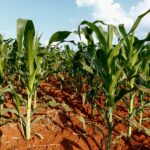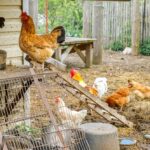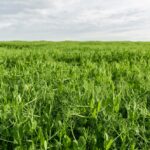Here are 10 things you should know about a Agricultural Data Analyst job:
- Job Description: As an Agricultural Data Analyst, your main responsibility is to collect, analyze, and interpret data related to agricultural operations. You will work with various types of data, such as crop yields, weather patterns, soil quality, and market trends, to provide insights and recommendations to improve agricultural productivity and efficiency.
- Educational Background: A bachelor’s degree in a field such as agricultural science, statistics, data science, or a related discipline is typically required for a career as an Agricultural Data Analyst. Some employers may prefer candidates with a master’s degree or higher level of education.
- Technical Skills: Proficiency in data analysis tools and software is essential for this role. You should have a strong understanding of statistical analysis, data visualization, and database management. Knowledge of programming languages like R or Python is often required to manipulate and analyze large datasets.
- Agricultural Knowledge: A solid understanding of agricultural practices, crop management, and farming operations is crucial to effectively analyze agricultural data. Familiarity with concepts such as crop rotation, pest management, irrigation techniques, and soil science will help you interpret the data accurately and provide meaningful insights.
- Data Collection: You will be involved in collecting and organizing agricultural data from various sources, such as farm management systems, satellite imagery, weather stations, and government databases. This may require field visits and collaboration with farmers, agronomists, and other stakeholders to ensure accurate data collection.
- Data Analysis: Using statistical techniques and data analysis tools, you will analyze the collected data to identify patterns, correlations, and trends. This analysis will help in making informed decisions regarding crop selection, fertilizer application, irrigation scheduling, and other agricultural practices.
- Reporting and Visualization: As an Agricultural Data Analyst, you will prepare reports and present your findings to stakeholders, including farmers, agricultural consultants, and management teams. Data visualization techniques, such as charts, graphs, and maps, are used to effectively communicate complex information in a concise and understandable manner.
- Predictive Modeling: One of the key tasks of an Agricultural Data Analyst is to develop predictive models that forecast crop yields, disease outbreaks, or market trends. These models can assist in decision-making processes, such as determining optimal planting dates or predicting the impact of weather conditions on crop production.
- Continuous Learning: The field of agriculture is constantly evolving, with new technologies and methodologies emerging. As an Agricultural Data Analyst, it is important to stay updated with the latest advancements in agricultural practices, data analysis techniques, and technology platforms used in the industry.
- Collaboration and Communication: Effective collaboration and communication skills are vital in this role. You will work closely with farmers, agronomists, researchers, and other professionals in the agriculture industry. Being able to understand their needs, communicate your findings clearly, and provide actionable recommendations will contribute to your success as an Agricultural Data Analyst.
Join 'Farmers Mag' WhatsApp Channel
Get the latest Farming news and tips delivered straight to your WhatsApp
CLICK HERE TO JOIN






